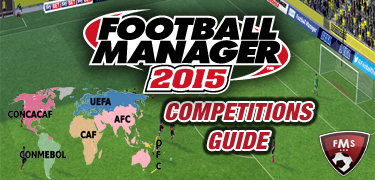
First impressions make a significant impact on how others perceive you, they say. Well, that might be the case so let me proper introduce myself before we start these series, for those of you who don’t know me already back from the forums. My name is Raul, I am 28 years old and I live in Romania but you can call me ‘Acss’, I am quite used to this in the virtual world so we can easily keep that for a name reference.
During these series I will try to cover the basics on world’s football competitions, understanding what they are made of and how they interact with each other, and hopefully this will gain you enough knowledge to start building success while you try your hands at the different challenges inside Football Manager.
Let’s start with the beginning…
FIFA: The Fédération Internationale de Football Association
 FIFA is the international governing body of association football, futsal and beach soccer. Founded in 1904, FIFA is responsible for the organisation of football’s major international tournaments, notably the World Cup which commenced in 1930 and the Women’s World Cup which commenced in 1991. The association is established in Zurich, Switzerland and membership now comprises 209 national associations.
FIFA is the international governing body of association football, futsal and beach soccer. Founded in 1904, FIFA is responsible for the organisation of football’s major international tournaments, notably the World Cup which commenced in 1930 and the Women’s World Cup which commenced in 1991. The association is established in Zurich, Switzerland and membership now comprises 209 national associations.
There are six confederations recognized by FIFA, and we are going to analyze these in order:
- UEFA – Union of European Football Associations
- AFC – Asian Football Confederation
- CAF — Confederation of African Football
- CONCACAF – Confederation of North, Central American and Caribbean Association Football
- CONMEBOL – Confederación Sudamericana de Fútbol
- OFC – Oceania Football Confederation
UEFA: Union of European Football Associations
UEFA was founded in 1954 in Basel, Switzerland. UEFA represents the national football associations of Europe, which today consists of 54 members. All European competitions are organized by the UEFA, including the European Championship and the club major tournaments UEFA Champions League, UEFA Europa League and UEFA Super Cup.
UEFA Champions League
The top-ranked UEFA competition and one of the most prestigious tournaments in the world. The competition was re-structured in the 1992/93 season from a previous one that only gathered the top team of each country (held from 1955–92 and known as the European Champion Clubs’ Cup or simply the European Cup).
The winners of the previous Champions League season are given an additional entry as title holders if they do not qualify through their domestic league (if the title holders are from the top three associations and finish outside the top four in their league, their entry comes at the expense of the fourth-placed team, because no association can have more than four teams playing in the Champions League). Also, this season is the first where clubs must comply with UEFA Financial Fair Play Regulations in order to participate. But more about that, later.
Champions League STAGES (2014-2015 season)
In its present format, the UEFA Champions League begins in mid-July with three knockout qualifying rounds and a play-off round. The final will be played on 6 June 2015 at the Olympiastadion in Berlin, Germany and the winner of the UEFA Champions League will qualify for the UEFA Super Cup and the FIFA Club World Cup. All games except the final will be played on a two-legged tie, with each team as the home team in one leg.
UEFA Europa League
Previously called the UEFA Cup, Europa League is an annual competition organized by UEFA since 1971 for European football clubs. Qualification is based on the clubs’ performance in their national leagues and cup competitions.
Same as for the Champions League, this season is the first where clubs must comply with UEFA Financial Fair Play Regulations in order to participate. You should also know that starting from this edition, the Europa League winners will qualify for the subsequent Champions League season (they will enter in either the play-offs or in the groups phase). The winners will also qualify for the UEFA Super Cup, where they will play against the winners of the Champions League.
European League STAGES (2014-2015 season)
The 2014-15 season starts on 1st of July and ends on May 27, with the final being played at the Stadion Narodowy in Warsaw, Poland. All games except the final will be played on a two-legged tie, with each team as the home team in one leg.
Regarding squad registration, the first window will open before the first qualifying phase for both competitions and you will be able to register a maximum of 25 players. However you must be careful to include at least 8 homegrown players in the squad, else you will have to leave their place empty. UEFA defines homegrown players
as those who, regardless of their nationality, have been trained by their club or by another club in the same national association for at least three years between the age of 15 and 21. Up to half of the locally-trained players must be from the club itself, with the others being either from the club itself or from other clubs in the same association.
There is one more important aspect to be considered when playing in Europe, and that is the prize money your club gets from playing in these competitions. Succeeding in the Champions League can bring a vast amount of money into your club’s fortune, but the money from Europa League can also improve your club’s finances.
The prize money received by the clubs is divided into fixed payments based on participation and results (as presented in the table), and variable amounts that depend on the value of their TV market. Let’s take an example: for the 2012–13 Champions League season, Juventus, who were eliminated in the quarter-finals, earned nearly €65.3 million in total, of which €20.5 million was prize money, compared with the €55.0 million earned by Bayern Munich, who won the tournament and were awarded €35.9 million in prize money. Some of these values might also differ from the ones in Football Manager, from what I noticed the Europa League qualifying phases are treated with 100.000€ each, but other than that it should be according to the ones in the table.
UEFA Super Cup
As previously mentioned, the Super Cup is contested between the winners of the Champions League and Europa League, and it takes place at the start of the domestic season, in mid-August, normally on a Tuesday. The Super Cup is being played in a single match final, contested in a neutral venue. The match consists of two periods of 45 minutes each. If the scores are level at the end of 90 minutes, two additional 15-minute periods of extra time are played. If there is no winner at the end of the extra time, a penalty shoot-out determines the winner.
As of 2012, UEFA awards €2.2 million to the runners-up and €3 million to the winners of the Super Cup. The 2015 Super Cup (40th edition) will be played at the Mikheil Meskhi Stadium in Tbilisi, Georgia, and it is scheduled for 11th of August.
We talked about national associations rankings and financial fair play, so in the end let’s take a quick look over these topics…
- Understanding Coefficients:
Well, you probably noticed (if you didn’t know that already) that the seedings for both Champions League and Europa League are determined by specific rankings of each national football association. There are two coefficients that are taken into account at each start of the European season and these are the ones responsible for the rankings: the Country Coefficient and the Club Coefficient. Let’s consider the following table:
The Country coefficient is used to rank the collective performance of the clubs in each nation, for assigning the number of places and at what stage clubs enter the UEFA Champions League and the UEFA Europa League. This coefficient is determined by the results of European games over the past five seasons. The coefficient is calculated by working out an average score: dividing the number of points obtained, by the total number of clubs representing a nation in that European season. (results determined after extra-time are included in this method, but results determined after penalty shoot-outs are not — the result is considered a draw).
The Club coefficient is used to rank individual clubs, for seeding in the UEFA Champions League and Europa League (depending on these, the club will either be seeded or unseeded). All earned points by each club are summed together and summed with 20% of given country coefficient.
In Football Manager, the country coefficient can be found at the following path, World -> Europe -> [International] Nation Club Coefficients while the club coefficient is under World -> Europe -> [Club] Coefficients. You can also have a look at the Qualification Places, they are found under the same menu.
- UEFA Financial Fair Play:
These regulations were brought in to prevent football clubs from spending more than they earn and in doing so getting into financial problems. Taken from uefa.com,
Clubs can spend up to €5million more than they earn per assessment period (three years). However it can exceed this level to a certain limit, if it is entirely covered by a direct contribution/payment from the club owner(s) or a related party. In order to promote investment in stadiums, training facilities and youth development, all such costs are excluded from the break-even calculation.
The legislation currently allows for eight separate punishments to be taken against clubs transgressing the rules, based in order of severity. The ultimate penalty is disqualification from European competitions, but other possible penalties include fines, points deduction, withholding of prize money or restrictions on players registration.
In Football Manager, the Financial Fair-Play rules are mentioned under the competition rules, where it states the following:
Teams must avoid making a loss of more than €4.99M over a three-season period in order to comply with financial fair play regulations. Failure to comply will result in the following sanction: A ban from the competition for one season. The board is allowed to invest a maximum of €40M towards the calculated income.
And that above finally ends our first episode, so bare in mind how you deal with your finances or you might face consequences! I am quite curious to know if your club can get a one-year ban if you ignore the fair play regulations, but either way you should always keep an eye on your money, and always consider the long term investments. Until next time, please feel free to leave any comments or questions below and I will see them answered as soon as possible.
Thanks for following!

1 Comment
Leave a Reply
Отменить ответ
Leave a Reply
FM 2022 Latest
-




FM 2022
/ 3 года agoBest English Wonderkids in FM23 | 10 Must-Sign Players
Throughout the past 10 years, English football has seen it’s youth teams develop into...
-




FM 2022
/ 3 года agoBest FM23 Coaches — Football Manager 2023 Coaches By Category
The best FM23 coaches are vital to success and the full development of your...
-








FM 2022
/ 3 года agoGateshead to Glory Season 8 — The European Debut
Welcome to a new episode of my FM 2022 story managing Gateshead from Vanarama...
-








FM 2022
/ 3 года agoGateshead to Glory Season 7 — Second Year in the EPL
Hi, welcome to a new episode of my Football Manager story managing Gateshead from...
-








FM 2022
/ 3 года agoGateshead to Glory Season 6 — Premier League Debut
Hi, welcome to a new episode of my Football Manager story managing Gateshead from...
-
FM 2022
/ 3 года agoFootball Manager Lower League Tactic Back to Back Promotions
Welcome to this Football Manager lower league tactic guide. Intro: Hi, I’ve been playing...
Свежие записи
Subscribe to our Newsletter
FM 2022 Player Lists
-






FM 2022
/ 3 года agoBest English Wonderkids in FM23 | 10 Must-Sign Players
Throughout the past 10 years, English football has seen it’s youth teams develop into...
-

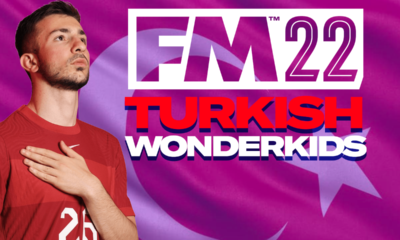


FM 2022
/ 4 года agoBest FM22 Turkish Wonderkids | Golden Generation of Talent
Who are the FM22 Turkish Wonderkids? We’ve searched through the database in Football Manager...
-

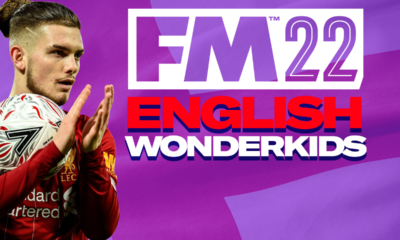


FM 2022
/ 4 года agoBest FM22 English Wonderkids | 10 Outstanding Talents to sign
Who are the FM22 English Wonderkids? We’ve searched through the Football Manager 2022 Database...
-




FM 2022
/ 4 года agoBest FM22 Vanarama National League North & South Free Agents
Football Manager 2022 is here, and below you will find the best FM22 Vanarama...
-

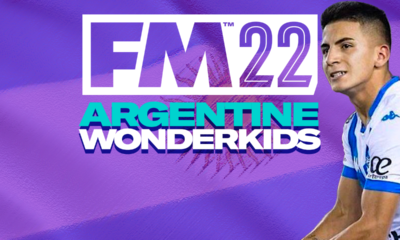


FM 2022
/ 4 года agoThe 11 Best FM22 Argentine Wonderkids
Who are the FM22 Argentine Wonderkids? We’ve searched through the Football Manager 2022 Database...
-




FM 2022
/ 4 года ago11 of the Best FM22 Brazilian Wonderkids
Who are the FM22 Brazilian Wonderkids? We’ve searched through the Football Manager 2022 Database...

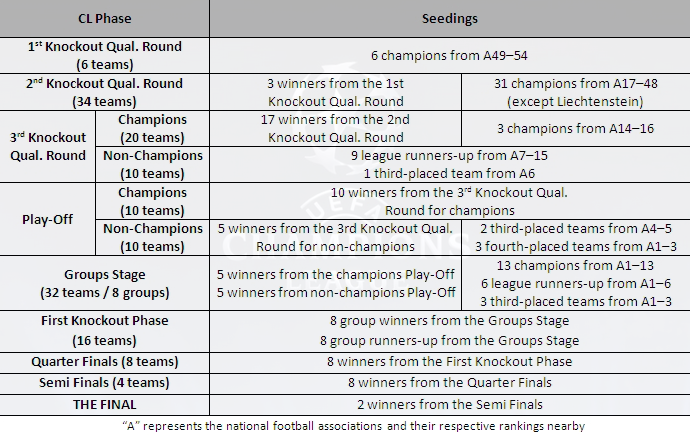

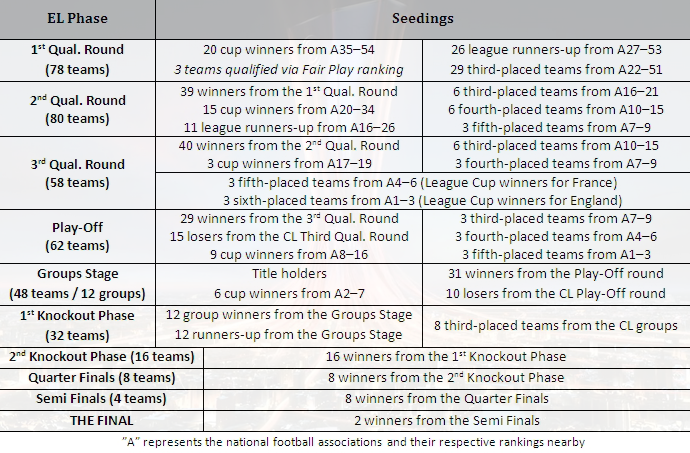
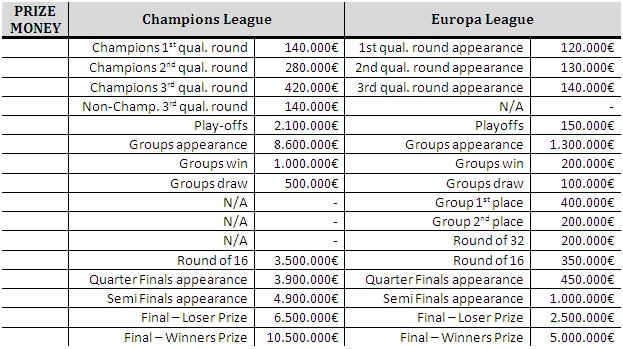

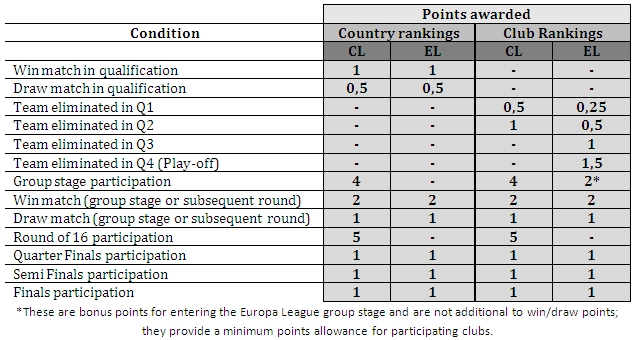
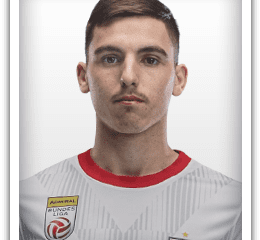







Pingback: Football Manager 2015 - Page 12